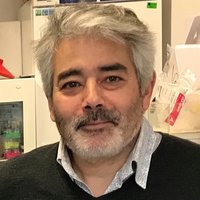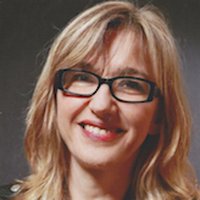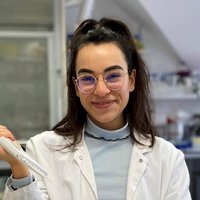Resistance to antibacterial agents
- Duration: 8 weeks
- Effort: 20 hours
- Pace: ~2h30/week
- Languages: English and french
What you will learn
At the end of this course, you will be able to:
- Explain how antibiotic resistance emerges and spreads, and its dramatic consequences.
- Describe the epidemiology of resistance in humans, animals and the environment.
- Apply laboratory methods for diagnosis and identification of antibiotic resistance.
- Follow recommendations to prevent the emergence of resistance in humans and farm animals through better control of antibiotic prescribing.
- Examine ways of replacing antibiotics or bringing new molecules of antibacterial agents onto the market.
Description
In 2016, the WHO estimated that if no action is taken, by 2050, 10 million people could die each year from antibiotic-resistant infections. This led it to declare that the emergence and spread of bacteria resistant to antibacterial agents was "a growing threat to public health worldwide, requiring action across all sectors and throughout society". The MOOC Resistance to Antibacterial Agents addresses the major public health problem of the emergence of multi-drug resistant bacteria, responsible for increased morbidity and mortality of a wide range of bacterial infections.
This MOOC aims to provide basic knowledge on the origin and spread of resistance to antibacterial agents, its identification, and its consequences. It shows the epidemiology of resistance in humans, animals and the environment. It addresses the concepts to control it, in a "one health" perspective. Finally, this MOOC tries to highlight the alternatives to antibiotics, the latest molecules available and the molecules under development.
Format
The MOOC is organized in 6 weeks. Each week is composed of 4 to 6 sections. Each section includes an 8-to-10-minute video and 2 multiple-choice questions to help participants test their acquired knowledge. The videos are in English, with French and English subtitles. All the tests are in English and French.
19 sessions were updated in 2022.
Prerequisites
This MOOC is aimed at undergraduate, graduate and PhD biology students, medical doctors, teachers, researchers and all those who want to learn how antibacterial agents work and how resistant strains have emerged and disseminated. A good scientific background is recommended to follow this MOOC.
Assessment and certification
To follow this course, you can choose between two options:
- The Discovery Course gives access to videos, quizzes and discussions in the forum. No badge is issued for this course. Registration is free.
- The Qualifying Course leads to a certificate. In addition to the activities of the Discovery Course, you will have to take a one-hour supervised distance learning exam, consisting of 30 multiple-choice questions (MCQs) and obtaining 18 correct answers. The registration fee for the Qualifying Course is 150€.
Successful completion of the Qualifying Course gives you the opportunity to apply for the Institut Pasteur Online Diploma of Infectious Diseases (DNM2IP), which consists of 5 certificates to Institut Pasteur MOOCs on infectious diseases. To learn more, visit the Institut Pasteur's web page dedicated to this diploma.
Course plan
- 1-1 Mode of action (Patrick Trieu-Cuot)
- 1-2 Origin and biosynthesis (Didier Mazel)
- 1-3 Impact on human health (François-Xavier Lescure)
- 1-4 Antibiotherapy (François-Xavier Lescure)
- 1-5 Compliance to antimicrobial agents in France and in Europe (Danny de Vries)
- 1-6 Veterinary usage (Jean-Yves Madec)
- 2-1 Epidemiology and cost of bacterial resistance in Europe (Mélanie Colomb-Cotinat)
- 2-2 Epidemiology of bacterial resistance in livestock (Lucie Collineau)
- 2-3 Resistance mechanisms (Claire Poyart)
- 2-4 Antibacterial resistance in the community and the hospital (Marie-Cécile Ploy)
- 2-5 Nosocomal infections (Jean-Damien Ricard)
- 3-1 Phenotypic approaches (Asmaa Tazi)
- 3-2 Genotypic approaches (Thierry Naas)
- 3-3 In silico antibiogram: genomic approaches (Philippe Glaser)
- 3-4 Automated approaches (Laurence Armand)
- 4-1 Natural versus acquired Resistance (Béatrice Berçot)
- 4-2 Origin of resistance genes (Patrick Trieu-Cuot)
- 4-3 Role of the environment in the dissemination of resistance (Didier Hocquet)
- 4-4 Role of antibiotics in used water in resistance (Charlotte Arnal)
- 4-5 Transferability of resistance genes (Didier Mazel)
- 4-6 Evolution of bacterial populations (Philippe Glaser)
- 5-1 Antibiotics stewardship (Victoire de Lastours)
- 5-2 Mastering resistance in hospitals (Solen Kerneis)
- 5-3 Antimicrobial use in livestock : a social sciences perspective (Nicolas Fortané)
- 5-4 Health policy in France on antibiotics resistance (Céline Pulcini)
- 5-5 Modelling bacterial resistance (Lulla Opatowski)
- 6-1 Revisiting "old" molecules (Béatrice Berçot)
- 6-2 New drugs and therapeutic strategies (Paola Arimondo)
- 6-3 From leads to candidates (Sonia Escaich)
- 6-4 Anti-virulence strategies (Asmaa Tazi)
- 6-5 Phagotherapy (Laurent Debarbieux)
- 6-6 CRISPR tools to study and fight antibiotic resistance (David Bikard)
Course team
Didier Mazel
Categories
Patrick Trieu-Cuot
Categories
Béatrice Berçot
Categories
Manon LANG
Categories
Organizations
With the financial support of the network PROMISE
License
License for the course content

Attribution-NonCommercial-NoDerivatives
You are free to:
- Share — copy and redistribute the material in any medium or format
Under the following terms:
- Attribution — You must give appropriate credit, provide a link to the license, and indicate if changes were made. You may do so in any reasonable manner, but not in any way that suggests the licensor endorses you or your use.
- NonCommercial — You may not use the material for commercial purposes.
- NoDerivatives — If you remix, transform, or build upon the material, you may not distribute the modified material.
License for the content created by course participants

All rights reserved
"All rights reserved" is a copyright formality indicating that the copyright holder reserves, or holds for its own use, all the rights provided by copyright law.






